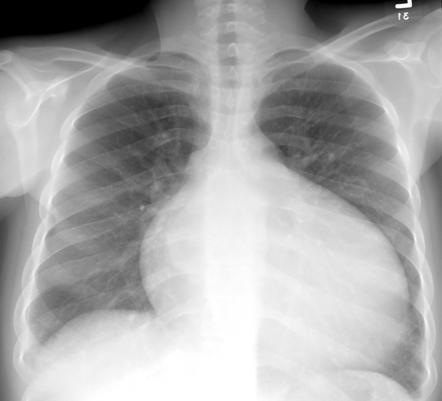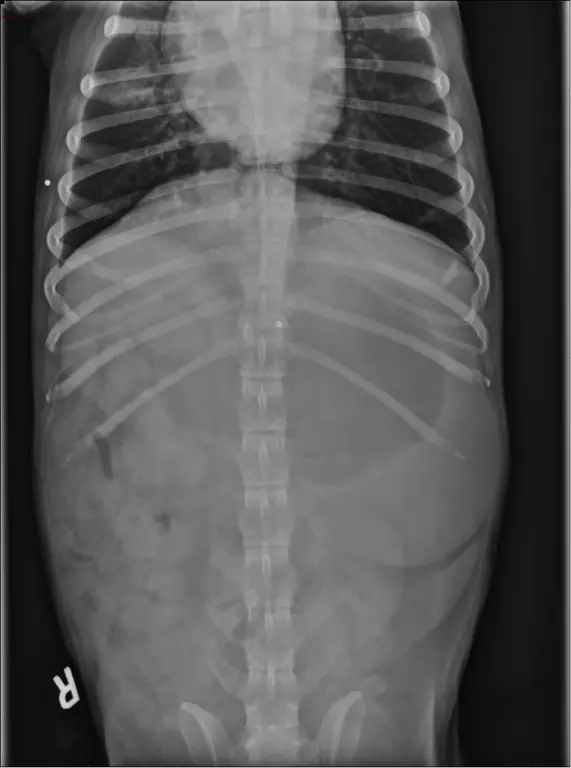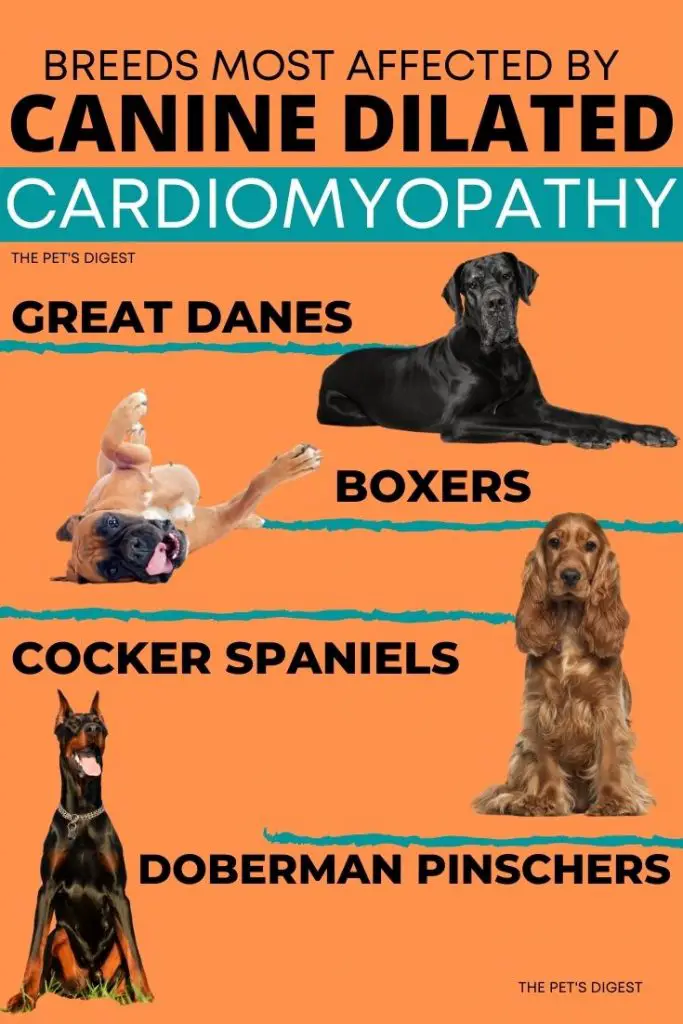What is a grain-free diet?
A dog food is deemed grain-free if it is made without corn, rice, wheat, or other grains. Many of these grains have been replaced with alternative carbohydrate sources like potatoes and peas.
What is DCM?
DCM or Canine Dilated Cardiomyopathy is a disease that primarily affects the heart. It tremendously decreases the ability of the heart to efficiently pump blood throughout the body.
The ventricles of the heart dilate as blood pools into the chamber and this in turn thins out the ventricular wall. There are also times when veterinarians see a dilation of all four heart chambers.

Photo Credit: Radiopedia

Photo Credit: MedVet
What causes DCM?
While many times a definitive cause eludes pet owners and vets when foods low in both taurine and carnitine have been known to contribute to an onset of the disease in cats and dogs. But the cause in dogs is usually multifactorial and can include genetic predisposition, infection and of course nutrition.
Which dogs are most affected by DCM?
All dogs can acquire the disease, but there are specific breeds that seem to be affected at a higher rate and include:
- Great Danes
- Boxers
- Newfoundlands
- Cocker Spaniels
- Portuguese Water dogs
- Doberman Pinschers

What are the clinical signs of DCM?
Clinical signs of DCM are usually associated with the inability of the heart to pump blood to organs and tissues as needed and include:
- lethargy (extremely tired)
- weakness
- collapse
- weight loss
- coughing (if blood spills into the lungs)
- Panting
- Struggling to breath
How is DCM diagnosed?
DCM is diagnosed by echocardiography and as shown above, a thoracic radiograph or x-ray can be useful as well, although it is not a definitive diagnosis.
How is DCM treated in dogs?
The objective of treatment in dogs is to get the heart to pump efficiently. Your vet will most likely give some medication to help dilate your dog’s blood vessels so that the blood can move into these areas and not pool in the heart.
Determining and discontinuing or treating the underlying cause of DCM is also critical to a pets survival. In some cases the cause eludes owners and vets and the dog will require life-long treatment.
Can my dog live with DCM?
Dogs can live with DCM, although the prognosis depends heavily on how quickly a veterinarian treats your pet, breed predilection, and the underlying cause.
Unfortunately, Doberman Pinschers have a less favorable outcome than Cocker spaniels and some other dogs in general.
What does diet have to do with DCM?
In 2018 the FDA started an investigation that ties grain-free dog foods with an increase in DCM cases. The latest FDA update was June 27th, 2019 where they noted a continued effort to determine correlation and possible causality.
The link between DCM and grain-free diets may be due to ingredients used to replace grains. These include peas, lentils, chickpeas and potatoes. Beet pulp in foods has also been known to decrease taurine in dogs in some cases.
The FDA is still unsure of what has caused the notable increase in DCM in dogs fed a grain-free diet and are still investigating the issue. The link between DCM and diet has yet to definitively proven, however, some considerations are:
Low Taurine Levels
Research done to address the concerns between grain-free diets and DCM have largely focused on taurine deficiencies. Taurine is an amino acid found in both cats and dogs and although the exact function is not completely understood it does play an important role in heart health. Cats must get taurine from their food, while dogs can make it if there is enough methionine and cysteine in the food.
Taurine is necessary for the proper function of multiple organs including the heart, and digestion, immune function and fetal development in cats. Dogs use taurine for the health of their eyes and heart in addition to promoting proper bile and reproductive function.
Dogs who don’t eat enough taurine-rich foods run the risk of developing low taurine blood levels and subsequently may be at a higher risk of developing DCM. Taurine supplementation does help in these cases, within 6-12 months. However, it was also shown that many of the dogs diagnosed with DCM did not have low taurine levels which suggests there is possibly an alternative ingredient or deficiency causing DCM in dogs.
In the past dog food has been associated with heart disease but instead of grain-free being the possible culprit it was lamb based meals. Lamb and rice meals increased in popularity due to being a different protein source and possibly lessened the chances of sparking allergies in dogs. However, there were speculation that the lamb meal in these diets did not provide enough methionine and cysteine but this was never definitely proven.
Excessive fiber and plant protein
The second possibility is that some grain-free and boutique diets are heavier on legumes and potatoes than meat and scientist are looking at the correlation between this fact and DCM.
In addition it has been shown that foods high in fiber, like beet pulp, may decrease the digestion of protein and amino acids which subsequently leads to a deficiency in taurine and carnitine, amongst other amino acids, but more research is needed.
Multifactorial
A third and more likely consideration is that the cause is multifactorial. Researchers are now considering the diet as a whole instead of calling out one or two ingredients, like peas or lentils, as the cause of the increased DCM in dogs. In addition genetic predisposition to the disease should also be factored in.
At this point in their investigation the FDA has not narrowed down a specific cause of possible food related DCM in dogs.
While DCM remains a relatively rare health concern to most pet owners there are those that have unfortunately been affected by the disease. One article by noted that only about one out of 750,000 dogs in the United States actually die from DCM within a 5-year period in contrast to the 89,700,000 that diagnosed with cancer which is about 1/15 dogs. However, for the families that have been affected by DCM the rarity does not mean much.
Currently, there are no recommendations to discontinue a grain-free diet if your dog is doing well on the food.
Before you leave, tell us your thoughts!
- Will you or have you discontinued grain-free diets in your home?
- Does this information help you in determining what food you will feed your dog?


























































































































